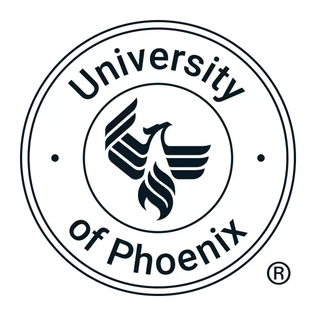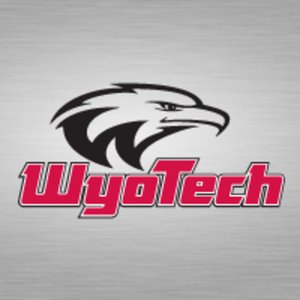Related Research Articles
Barry Jay Minkow is a former American businessman, pastor, and convicted felon. While still in high school, Minkow founded ZZZZ Best, which appeared to be an immensely successful carpet-cleaning and restoration company. However, it was actually a front to attract investment for a massive Ponzi scheme. ZZZZ Best collapsed in 1987, costing investors and lenders $100 million in one of the largest investment frauds ever perpetrated by a single person, as well as one of the largest accounting frauds in history. The scheme is often used as a case study of accounting fraud.
DeVry University is a privately owned for-profit university. DeVry is predominantly an online educator but does have campuses in the United States. It was founded in 1931 by Herman A. DeVry and is accredited by the Higher Learning Commission.
ITT Technical Institute was a private for-profit technical institute with its headquarters in Carmel, Indiana and many campuses throughout the United States. Founded in 1969 and growing to 130 campuses in 38 states of the United States, ITT Tech was one of the largest for-profit educators in the US before it closed in 2016.

University of Phoenix (UoPX) is a private for-profit university headquartered in Phoenix, Arizona. Founded in 1976, the university confers certificates and degrees at the certificate, associate, bachelor's, master's, and doctoral degree levels. It is institutionally accredited by the Higher Learning Commission and has an open enrollment admissions policy for many undergraduate programs. The school is owned by Apollo Global Management and Vistria Group.
Garnishment is a legal process for collecting a monetary judgment on behalf of a plaintiff from a defendant. Garnishment allows the plaintiff to take the money or property of the debtor from the person or institution that holds that property. A similar legal mechanism called execution allows the seizure of money or property held directly by the debtor.
The Art Institutes (AI) were a private for-profit system of art schools in the United States.

WyoTech, formerly known as Wyoming Technical Institute, is a for-profit, technical college founded in Laramie, Wyoming in 1966. WyoTech provides 3 core programs and 6 specialty programs that prepare students for careers as technicians in the automotive and diesel industry.
The Schabir Shaik trial was an important court trial in post-apartheid South Africa. The case, tried in the Durban and Coast Local Division of the High Court before Judge Hilary Squires, established a fraudulent and corrupt relationship between Durban-based businessman Schabir Shaik and former South African leader Jacob Zuma.
A debt buyer is a company, sometimes a collection agency, a private debt collection law firm, or a private investor, that purchases delinquent or charged-off debts from a creditor or lender for a percentage of the face value of the debt based on the potential collectibility of the accounts. The debt buyer can then collect on its own, utilize the services of a third-party collection agency, repackage and resell portions of the purchased portfolio, or use any combination of these options.

In the United States, student loans are a form of financial aid intended to help students access higher education. In 2018, 70 percent of higher education graduates had used loans to cover some or all of their expenses. With notable exceptions, student loans must be repaid, in contrast to other forms of financial aid such as scholarships, which are not repaid, and grants, which rarely have to be repaid. Student loans may be discharged through bankruptcy, but this is difficult. Research shows that access to student loans increases credit-constrained students' degree completion, later-life earnings, and student loan repayment while having no impact on overall debt.
Education Management Corporation (EDMC) was a Pittsburgh, Pennsylvania-based operator of for-profit post-secondary educational institutions in the United States and Canada. The company was founded in 1962. At its peak in 2011, Education Management Corporation operated 110 schools through its higher education divisions: Argosy University, The Art Institutes, Brown Mackie College, and South University, and enrolled 158,300 students.
Thomas Joseph Petters is a former American businessman and chairman and CEO of Petters Group Worldwide, a company which stole over $2 billion in a Ponzi scheme. He was convicted of massive business fraud in 2009 and was imprisoned at the United States Penitentiary, Leavenworth. Amid mounting criminal investigations, Petters resigned as his company's CEO on September 29, 2008. He was convicted of numerous federal crimes for operating Petters Group Worldwide as a $3.65 billion Ponzi scheme and received a 50-year federal sentence.
Nationwide Asset Services was a US-based privately owned debt settlement company based both Phoenix, Arizona and Sacramento, California. The company was also affiliated with several other firms that provide nearly identical services and their own separate websites including American Debt Arbitration, Universal Nationwide and Universal Debt Reduction. The company faced law suites in a number of states which resulted in it being barred from providing debt settlement services in those states. It was shut down in 2015.
Health care fraud includes "snake oil" marketing, health insurance fraud, drug fraud, and medical fraud. Health insurance fraud occurs when a company or an individual defrauds an insurer or government health care program, such as Medicare or equivalent State programs. The manner in which this is done varies, and persons engaging in fraud are always seeking new ways to circumvent the law. Damages from fraud can be recovered by use of the False Claims Act, most commonly under the qui tam provisions which rewards an individual for being a "whistleblower", or relator (law).
Navient Corporation is an American student loan servicer based in Wilmington, Delaware. Managing nearly $300 billion in student loans for more than 12 million debtors, the company was formed in 2014 by the split of Sallie Mae into two distinct entities: Sallie Mae Bank and Navient. Navient employs 6,000 people at offices across the U.S. As of 2018, Navient services 25% of student loans in the United States.
Harris School of Business (HSB) was a for-profit college with locations in the northeast United States, and was a subsidiary of Trigram Education Partners. According to the US Department of Education, "HSB’s last day of educational instruction was Oct. 9, 2020, which serves as its official closure date for purposes of the federal student aid programs." Students may apply for a closed school discharge of their federal loans. HSB was founded in 1965 to provide post-secondary educations in allied health and business management. In August 2020, the US Department of Education cut off Title IV funds to the schools.
Lockhart v. United States, 546 U.S. 142 (2005), is a United States Supreme Court decision concerning whether the United States government can offset Social Security benefits to collect on student loan debt over 10 years old. In a unanimous decision, the Court affirmed the lower court's decision that allowed the offset by the government.
The 2017–18 NCAA Division I men's basketball corruption scandal was a corruption scandal, initially involving sportswear manufacturer Adidas as well as several college basketball programs associated with the brand but now involving many programs not affiliated with Adidas.

George Anthony Devolder Santos is an American former politician and convicted felon who served as the U.S. representative for New York's 3rd congressional district from January to December 2023, before he was expelled. He had run for the seat in 2020 but was defeated by incumbent Democratic Rep. Tom Suozzi. Suozzi opted against seeking re-election in 2022, and Santos ran for Congress again. That time, Santos prevailed, defeating Democrat Robert Zimmerman. Santos, who is gay, was the first Republican to be openly LGBT before being elected to Congress.
References
- ↑ Miller resigned amid allegations that he had committed mail fraud when he tried to convince the U.S. Department of Education that he had paid off more than $20,000 in student loans. "Easley taps Hall to fill Miller's seat". The News and Observer. July 12, 2006. [ permanent dead link ]